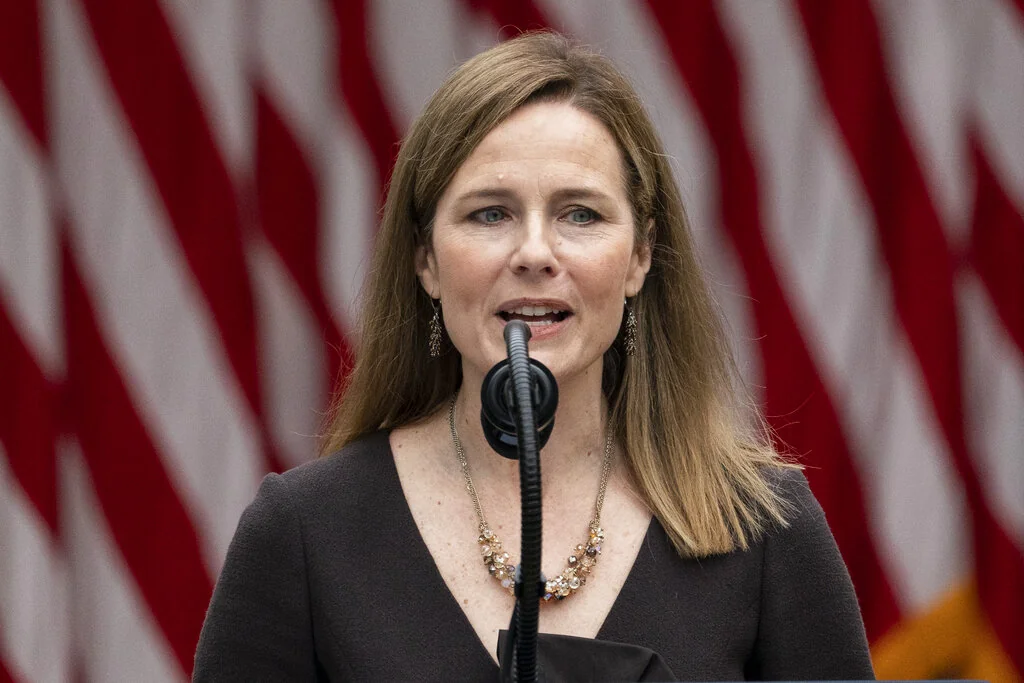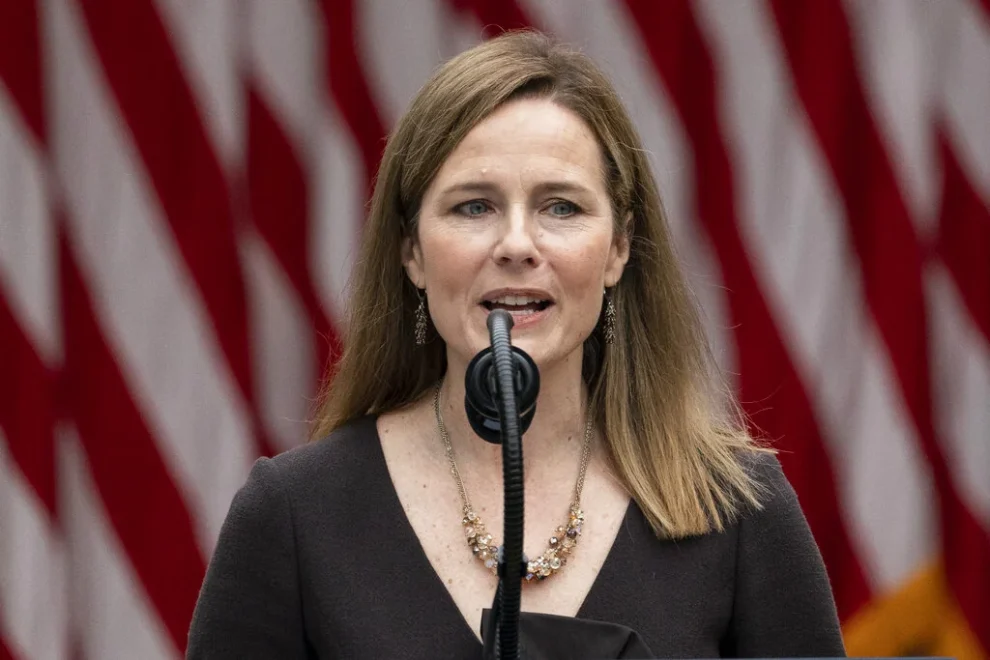Supreme Court Justice Amy Coney Barrett will take the stage alongside journalist Bari Weiss for a rare live conversation in New York City this fall. The event, hosted by The Free Press, will be held on Sept. 4 at Alice Tully Hall at Lincoln Center, marking the launch of Barrett’s forthcoming book, Listening to the Law: Reflections on the Court and Constitution.
Barrett and Weiss, both prominent figures known for challenging orthodoxy, will discuss the future of the Supreme Court, the Constitution, and America’s legal trajectory at a moment of sweeping cultural and political transformation. The conversation is part of The Free Press’s yearlong “America at 250” series.
The event is expected to sell out quickly. Attendees can purchase Listening to the Law at a discounted price of $28 before its official Sept. 9 release.

In her book, Barrett offers a glimpse into her life on the court, answering long-standing public questions from how the justices deliberate to how she balances work and motherhood. Written in the accessible tone that made her a favorite among law students, Barrett walks readers through constitutional interpretation, shares anecdotes from her clerkship with Justice Antonin Scalia, and makes a case for engaging with originalism in understanding American law.
Barrett has emerged as one of the most closely watched figures on the high court since her confirmation in 2020. A devout Catholic, mother of seven, and the only current justice not to have attended an Ivy League law school, Barrett was scrutinized during her hearings. She was famously told by the late Sen. Dianne Feinstein that “the dogma lives loudly within you.”
Yet five years later, Barrett has confounded political expectations, especially within the conservative base that once championed her. In March, Justice Barrett joined Justice John Roberts and the liberal justices in blocking President Donald Trump’s effort to freeze $2 billion in U.S. Agency for International Development funds, prompting fierce backlash from Make America Great Again conservatives who saw it as disloyalty.
COURT STILL FINDING WAYS TO ISSUE SWEEPING INJUNCTIONS MONTH AFTER SUPREME COURT RULING
But just weeks later, Barrett stunned critics by authoring the majority opinion in a 6-3 ruling that backed Trump’s executive order temporarily curbing birthright citizenship. Trump, elated by the verdict, personally praised her at a White House press conference, saying, “I want to thank Justice Barrett, who wrote the opinion brilliantly.”
Now, with Listening to the Law and a rare public conversation with Bari Weiss, Barrett is poised to define her role further, not just as a Supreme Court justice and author, but as a leading voice in the national conversation about law and the Constitution.
























